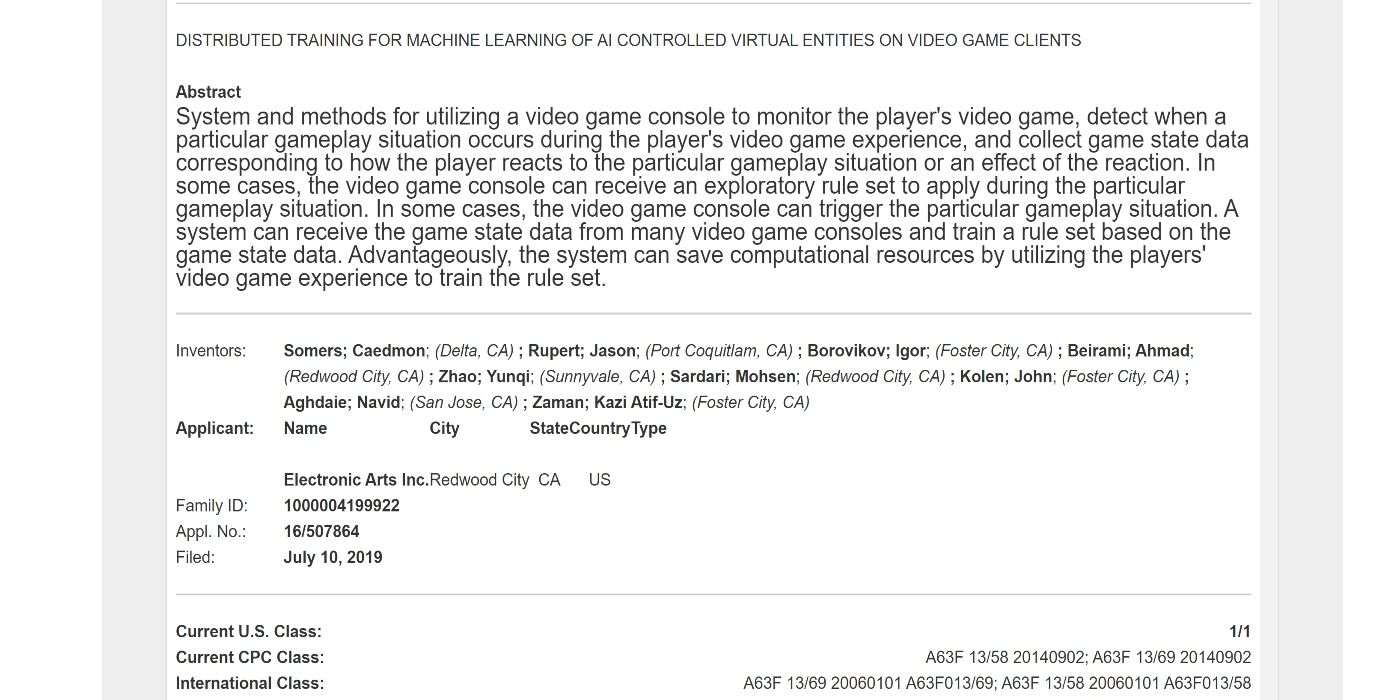For years one of the biggest complaints surrounding video games has been the unrealistic AI featured in a number of popular games, as developers struggle to find the perfect balance between making enemies hard enough to challenge the player but lenient enough that they don't steamroll them. It's a difficult balancing act, but one EA might be attempting to solve with a new patent that suggests it could integrate state-of-the-art technology to create more lifelike AI.
The patent is described as "training for machine learning of AI controlled virtual entities," with the crux supposedly surrounding AI learning from data gathered from real-life players. How EA's tech will do that is by allegedly detecting "when a particular gameplay situation occurs during the player's video game experience," and registering exactly how the player reacts. In turn, this will be used to "train a rule set based on the game state data."
In essence, it sounds like EA wants its AI to be able to learn from players' actions and create realistic gameplay sequences. Its applications could be incredibly beneficial when playing a shooter such as Battlefield, for example, with the AI flanking players if they stay behind cover for too long or learning to open fire if they keep charging into battles. Seeing as EA also specializes in sports games, it could make playing a few rounds of FIFA or Madden a more tactical experience as the opposing team begins to adapt to the player's strategies.
All in all, it's an interesting piece of tech that will hopefully be utilized to fix some of the lingering problems with AI in modern games. Several titles have attempted to use similar ideas, with Hello Neighbor's antagonist learning from the player's failed attempts to infiltrate his house and leaving traps in specific areas, for example. Another game called Echo from 2017 also put the idea at the forefront of its gameplay, with players being stalked by replicated versions of themselves that learn from their actions.
Regardless of how the patent is utilized, EA seemingly has a large number of games it can implement the idea into going forward, with the studio revealing it has several AAA experiences on the way. The company allegedly plans to release at least six next-generation games by March, alongside having a fair few titles in early development such as Skate 4 and Dragon Age 4. EA also announced it will debut a new Star Wars game in 2021, with fans hoping it could be the highly-anticipated sequel to Star Wars Jedi: Fallen Order.
Source: USPTO - EA


